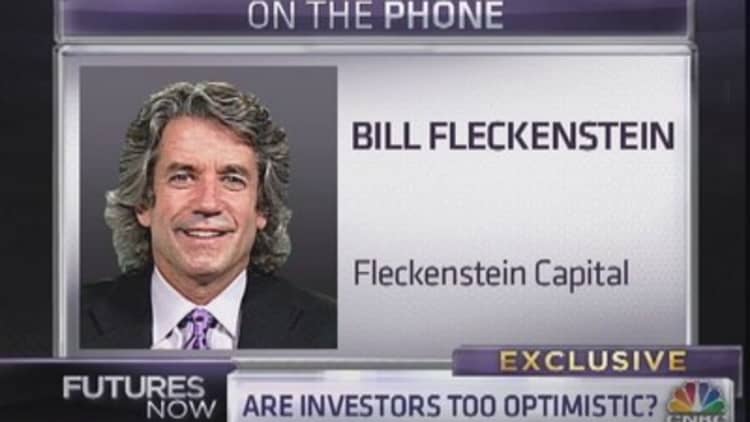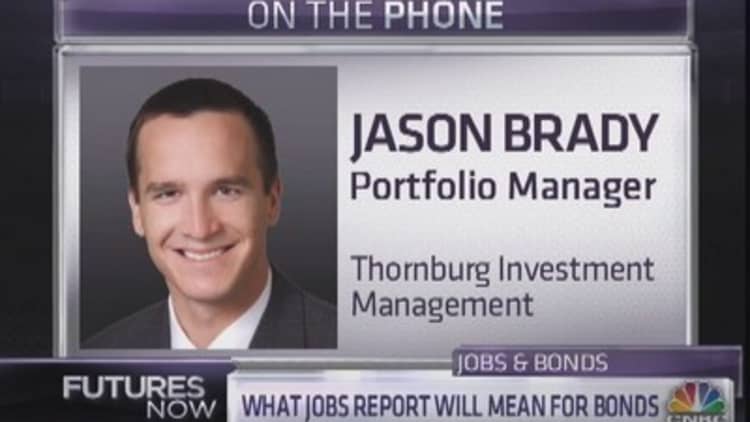
Bill Fleckenstein says that investors who buy into the stock market at all-time highs are making a grave error. Comparing the current situation to the infamous bubbles of 1999 and 2007, the noted contrarian and short seller says that bulls are ignoring fundamentals at their own peril.
"People are, once again, being fooled," Fleckenstein said on Thursday's episode of "Futures Now." "In the stock mania in 1999, people were bullish because stocks were going up. In 2007, people were bullish because stocks and real estate were going up. They didn't look at—Why are they going up? Is this sustainable? Is this healthy?—and in both cases, it was not."
In this case, the bubble Fleckenstein points to is powered not by tech stocks or real estate, but by the Federal Reserve's quantitative easing program.
(Read more: What is the Fed talking about?)
"Now we have the Fed suppressing the bond market such that rates are ridiculously low, and capital is being misallocated everywhere, and the price of nearly everything is out of whack," Fleckenstein said.
But he says the Fed is starting to lose control already—meaning that stocks could crack even if the Fed continues to buy $85 billion worth of assets each month.

"Interest rates on the 10-year bonds have risen 100 basis points since last spring, and there's still no tapering," Fleckenstein noted. "So why have bond rates risen? I think the Fed is no longer able to dictate where the bond market is going to trade. If that's the case—and I say 'if'—then the game is going to change prospectively, because if the Fed loses control of the bond market, it's not going to be able to have unilateral say in where assets trade."
(Read more: Bond fund manager: I hate bonds)
Specifically, Fleckenstein is watching the 3-percent level on the 10-year yield very closely.
"If the bond market trades through 3 percent in the absence of some superstrong economic data or an actual tapering, then it will be clear that something is radically different," Fleckenstein said.
So once things do change, how low can the market go?
Without getting specific, Fleckenstein said the stocks will head "a lot lower, and enough lower to make people really unhappy."
Yet some say investors' reaction to the Fed's policies has been perfectly rational.
"Bill Fleckenstein earlier said that the market is being 'fooled'—I think the market's really being pushed," Jason Brady, portfolio manager at Thornburg Investment Management, said later in the episode. "Treasurys are relatively low in yield, and that allows people comfort to go into stocks."
—By CNBC's Alex Rosenberg. Follow him on Twitter: @CNBCAlex.
Watch "Futures Now" Tuesdays and Thursdays at 1 p.m. ET exclusively on FuturesNow.CNBC.com!
Like us on Facebook! Facebook.com/CNBCFuturesNow.
Follow us on Twitter! @CNBCFuturesNow.



